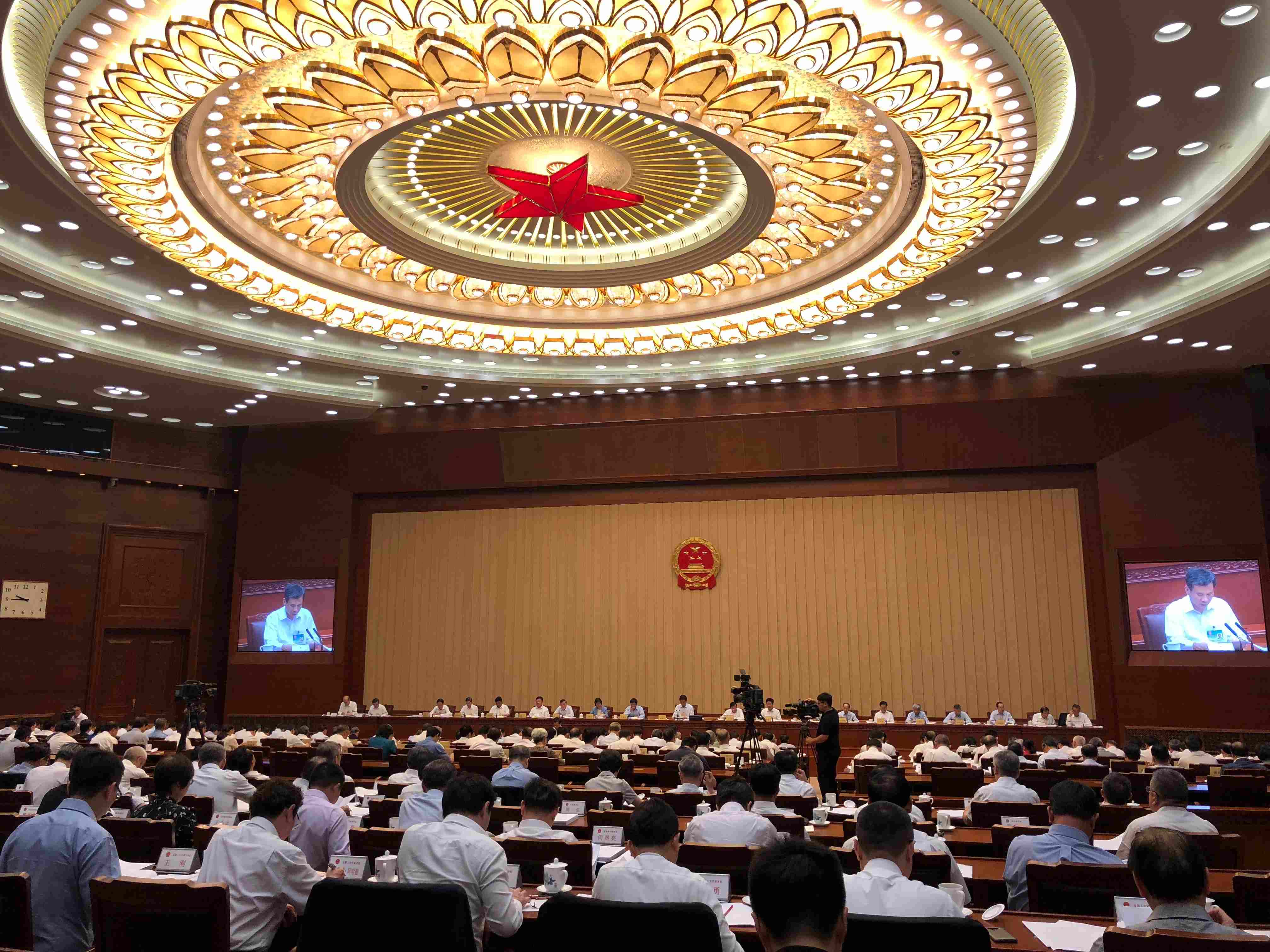
NPC kicks off its bi-monthly session on Tuesday. (Photo: CGTN)
China's lawmaking body is revising the personal income tax code in a sweeping overhaul of the tax system. The NPC says specific personal income tax changes that aim to reduce the burden to taxpayers and boost consumption are to be expected. It is considered to be China's biggest tax overhaul in more than two decades and lawmakers are not hesitating to voice their concerns.
The threshold at which people pay personal income tax is expected to be lifted to 5,000 yuan a month, from the current 3,500 yuan.
That means those with a monthly income of 10,000 yuan would roughly pay 255 yuan less each month.
Lawmaker Li Wei said: "As living expenses are rising rapidly, I don't think the current lift to 5,000 yuan is enough. My personal advice is to raise the threshold to 7,000 yuan."
Though some law makers believe there's still room to up the tax threshold, others think this is enough.
That's because this new move will already increase household income and enhance consumption power, as it eases the tax burden for individual taxpayers.
Lawmaker Zheng Gongcheng says the plan not only eases the tax burden on low- and lower-middle income families, but also helps to establish a modern fiscal system.
Zheng says this is a significant change in China's tax system, as the improving structure eases the burden off low-income individuals.
And for the first time, items deductible from personal tax will include expenses such as children's education, medical fees for major illnesses, interest on housing loans and rent.
These new deductions are meant to help with rising living costs.
Zheng suggests that the draft should include charity donations like stock shares and real estate into tax deductions.
Also for the first time, taxation is expected to cover all personal income, including earnings from personal services as well as rewards and royalties that writers earn, for example.
The finance ministry said China's total tax revenue in 2017 rose by 10.7 percent year-on-year to 14.4 trillion yuan, and tax revenue from individuals hit 1.2 trillion yuan – up a whopping 18.6 percent year-on-year.
A draft revision usually receives three readings before adoption. This is just the very first one, so there's still time to hash out the details. The current law on individual income tax has undergone seven revisions since it was enacted in 1980.
Back then, the original threshold for tax exemption was a monthly income of 800 yuan. It was raised to 1,600 yuan in 2005, and then adjusted twice more before it settled at the current 3,500 yuan.
The draft amendment says the previous method of monthly taxation will be replaced with a new calculator which focuses on annual income taxation. But some analysts say the amendment still leaves some problems unsolved. For instance, it does not lower the high marginal tax rates, nor has it suggested any reduction in the highest income tax rate of 45 percent. A reduction in the high-income tax bracket will not necessarily result in reduced tax revenue, since a lower rate can mean less cases of tax evasion and also increased revenue sources.
Law makers have just wrapped up their four-day bi-monthly session, where they also reviewed the third draft of an e-commerce law, which looks to further regulate the online market and protect consumer rights.


